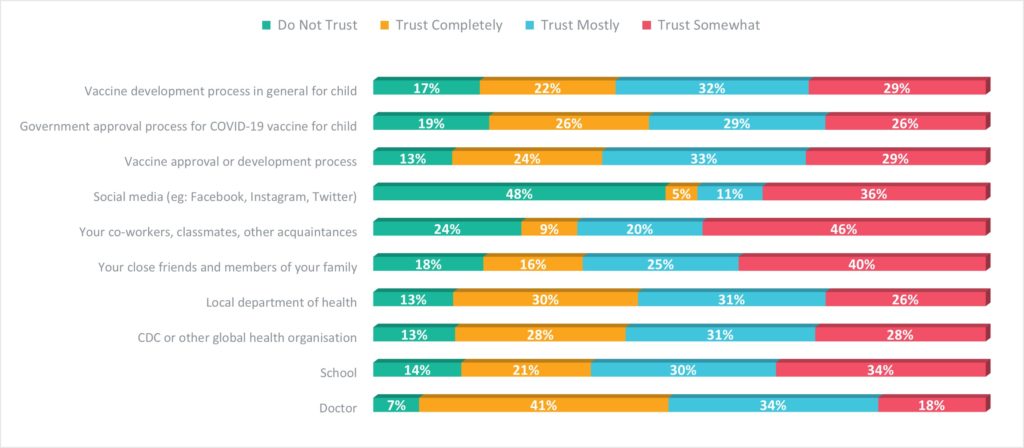The announcement by the South African government that children aged 12-18 are now eligible for Covid-19 vaccination has brought with it intense discussion around consent and the rights of minors. While this is so far a theoretical concern, given that most children in that age group will need their parents’ help to register for and receive a vaccination shot, a recent survey shows that the efficacy of the jab itself is no longer a sticking point.
When gig technology company, M4Jam ran a survey asking adults if they were willing to be vaccinated in late 2020, 32% of the 3000 respondents said they would. 17% believed their community medical facilities could cope with the patient load, and 58% of respondents wanted to wait and see what happened to others who took the jab before deciding for themselves.
In August 2021, a follow-up survey found that 56% of South Africans believed medical facilities would cope and 69% said they would happily be vaccinated. In both surveys, leading causes of mistrust and hesitancy were a lack of confidence in both possible side effects and the government’s ability to ensure that the vaccine’s contents were safe and effective.
By the end of October 2021, a new dynamic has emerged in the vaccination drive, with parents now able to decide whether their kids should receive a single dose. In a new M4Jam survey, 2498 South Africans answered questions about children and the vaccine, revealing some positive trend shifts from previous surveys.
A total of 1886 (76%) of the respondents are parents, which 80% of them said they would get their children vaccinated.. 47% strongly agreed with the statement. 52% of respondents said they had no concerns about children receiving the vaccine, but 74% were concerned that children do not require parental consent to get vaccinated.
64% of the parents said all that mattered to them was how effective the vaccine was in children, although 56% were still worried about possible short and long-term side effects from the vaccine.
“The results show an evolution of opinions in line with widening vaccination rollout and proven effectiveness,” says M4Jam CEO Georgie Midgley. “The more people who are vaccinated or know people who are, and the more those vaccinated people that have steered clear of Covid-19, the more positivity around the use of the vaccine will grow. However, people are still sceptical of the long-term safety of the vaccine as only time can resolve.”
83% of respondents felt children aged 12-18 are too young to make such a decision for themselves. “Again, because this is new ground for the vaccination programme, parents are understandably cautious about any potential differences in effects on children versus what adults experience,” says Midgley.
When asked which sources of information parents trusted in deciding to get their children vaccinated:

“What was very interesting and encouraging was that only 5% of respondents said they trusted what they read on social media completely. Co-workers and classmates received a similarly low complete trust rating at 9%. The vaccination messaging campaign seems to have made significant headway so that any residual concerns and fears are mostly legitimate by this stage. Parents are more worried about the ability of their children to make important decisions than they are about the vaccine itself,” says Midgley.
We understand that there are many aspects that encompass a Mother, Father or Child and strive toward providing resources and services that accommodates this.
Our content is aimed to inform and educate families on issues starting from pregnancy through to the challenges of the teen-age years.
- Say Hello to the Ultimate Holiday Brunch Bite - December 17, 2025
- Tiny Toons Looniversity Returns: Meet the Voice Behind Plucky and Hamton! - December 12, 2025
- From Pain to Possibility: Panado®’s New Marketing Campaign, Highlights The Joy Of Pain Relief - December 10, 2025





